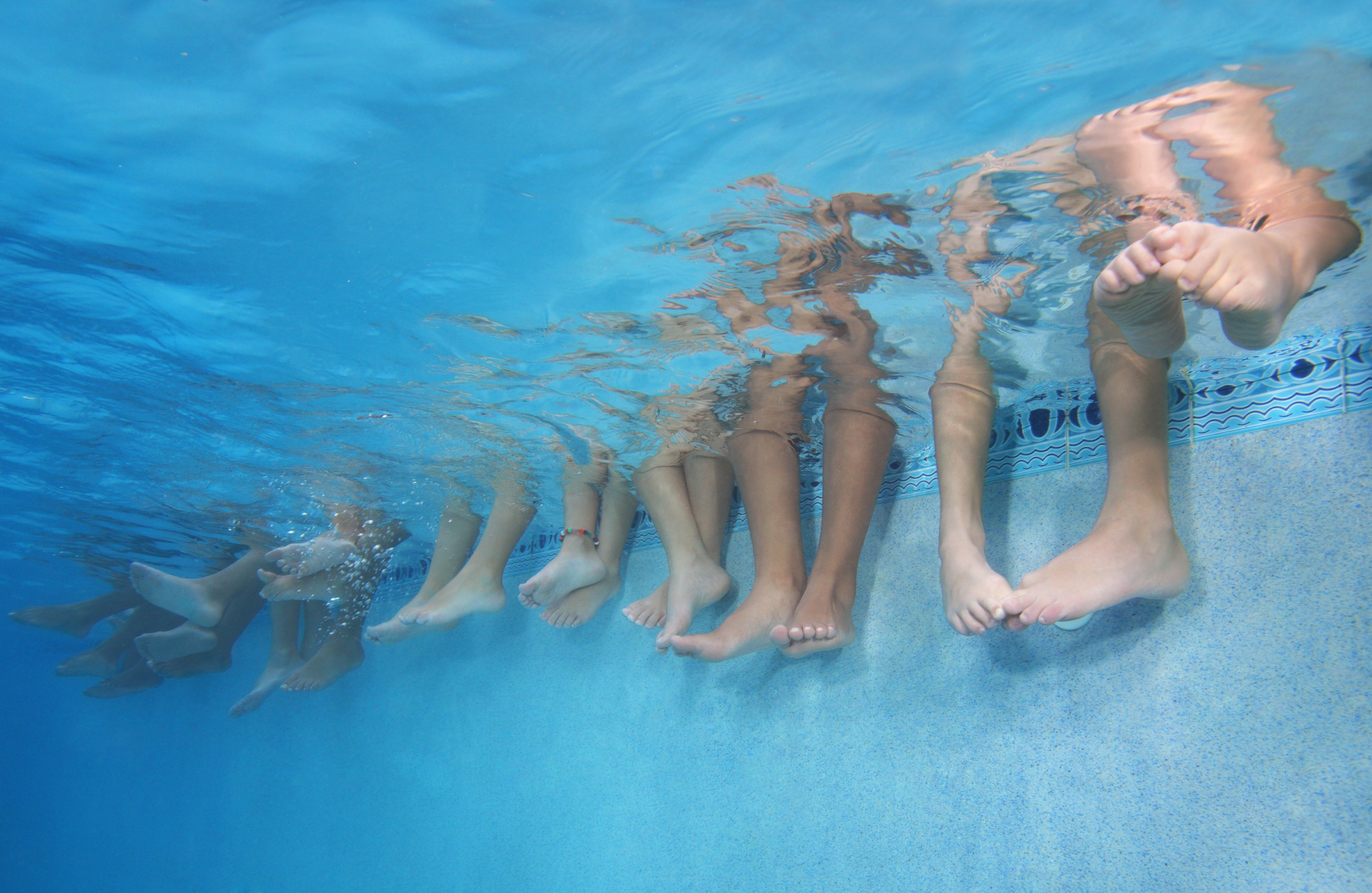
This article originally appeared on Health.
If you like to swim laps, or spend summer days poolside, you’ll want to read this. A new study in the journal Environmental Science & Technology Letters suggests the average pool may contain a great deal of urine.
Researchers at the University of Alberta in Canada set out to determine the extent of pee contamination in swimming pools. To do this, they tested water from pools and hot tubs in two Canadian cities for acesulfame potassium, or Ace-K, a widely consumed artificial sweetener found in supermarket staples like frozen meals, packaged cookies, and diet sodas.
What does sweet pool water have to do with pee? The amount of Ace-K in a pool is a helpful measure of the amount of urine present, since the ingredient is not metabolized by the body, is excreted exclusively through urine, and doesn’t get broken down by chlorine.
When researchers compared the levels of the sweetener in pool water and tap water, they found that the former contained up to 570 times more Ace-K. Based on those concentrations, they concluded that a 220,000-gallon commercial-size swimming pool likely contains almost 20 gallons of urine. A residential pool probably holds about two gallons.
The presence of pee in your pool isn’t just gross; it also raises real health questions, the researchers say. They point to recent studies that have shown bodily fluids like urine and sweat can react with disinfectants in the water to form disinfection byproducts (or DBPs), compounds that may cause uncomfortable symptoms like eye irritation and respiratory problems. Some preliminary research has even linked DBPs to cancer when they’re consumed.
Subscribe to our daily newsletter for the latest in hair, beauty, style and celebrity news.
So is it bad for your health to wade in other people’s wee? Don’t cancel your local pool membership just yet. Rutgers University environmental health expert Clifford Weisel, PhD, told NPR that people shouldn’t stop swimming—but they should be aware of the risks.
Here’s what to know: Indoor pools may be more harmful for those who already suffer from respiratory problems, like asthma. The harmful compounds can accumulate in the air. And a lack of natural sunlight means they’re less likely to break down.
What can you do about the pee problem? For one, don’t ‘go’ in the pool. Also make sure you rinse off before you jump in, says lead researcher Xing-Fang Li, PhD. A one-minute shower can remove much of the sweat that might react with disinfectants to form those health-compromising byproducts, she told NPR.
